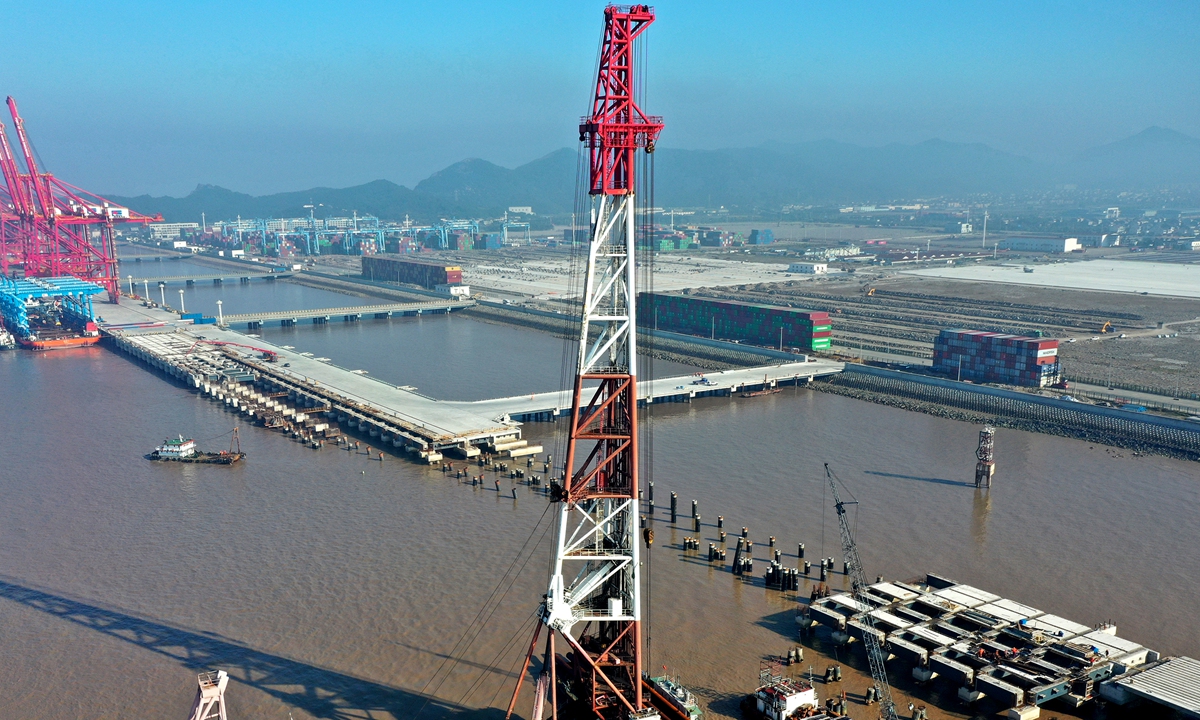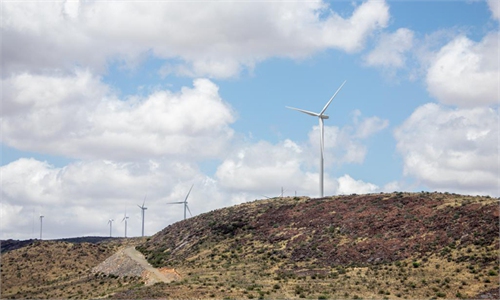
A construction site at Zhoushan port in Ningbo, East China's Zhejiang Province on October 26, 2021. Official data showed that the port's cargo throughput stood at 923 million tons in the first nine months of this year, up 4.1 percent from the same period last year. Photo: cnsphoto
China will reduce or cancel tariffs on certain imported goods and materials starting in 2022 in a bid to support the new development pattern and promote high-quality opening, according to the Ministry of Finance.
The new interim tariff rates on imports, which will be lower than Most Favored Nation (MFN) tariff rates, will apply to 954 kinds of goods as of Jan 1, including medicine, food products, winter sports equipment and automobile components, the Office of the Customs Tariff Commission of the State Council, announced on Wednesday.
Import duties will be eliminated on some anticancer drugs as well as oil paintings and other works of art that are more than 100 years old.
Starting on July 1, China will make the seventh reduction on MFN tariff rates for 62 kinds of information technology products. After the adjustment, China's total tariff level will continue to be maintained at the level of 7.4 percent, according to the Office of the Customs Tariff Commission.
The changes are meant to maintain the security and stability of the domestic industrial chain, support scientific and technological innovation and upgrading, build a global network of high-standard free trade zones, and continue to promote high-level opening, the office said.
In order to promote high-level opening, China will implement tariff rates on commodities originating from 29 countries or regions starting in 2022 in accordance with China's free trade agreements.
Tariff rates applied on goods originating in several countries and regions including New Zealand, Peru, Costa Rica, Switzerland and Iceland will be further reduced, in accordance with China's free trade agreements.
On January 1, the Regional Comprehensive Economic Partnership (RCEP) and the China-Cambodia FTA will take effect, according to the Ministry of Finance.
These tariff cuts are in line with China's efforts to further lower import tariffs and increase imports of high-quality goods and services in a bid to promote the integration of the regional economy.
According to the Ministry of Commerce, China and Singapore have made positive progress on follow-up negations on bilateral FTA upgrade.
China and Singapore held the third follow-up negotiations on the upgrading of the free trade agreement via video link on Tuesday in which the two sides agreed to maintain negotiations and promote the consultation on service trade and investment market access in a bid to improve the level of bilateral trade and investment liberalization.

